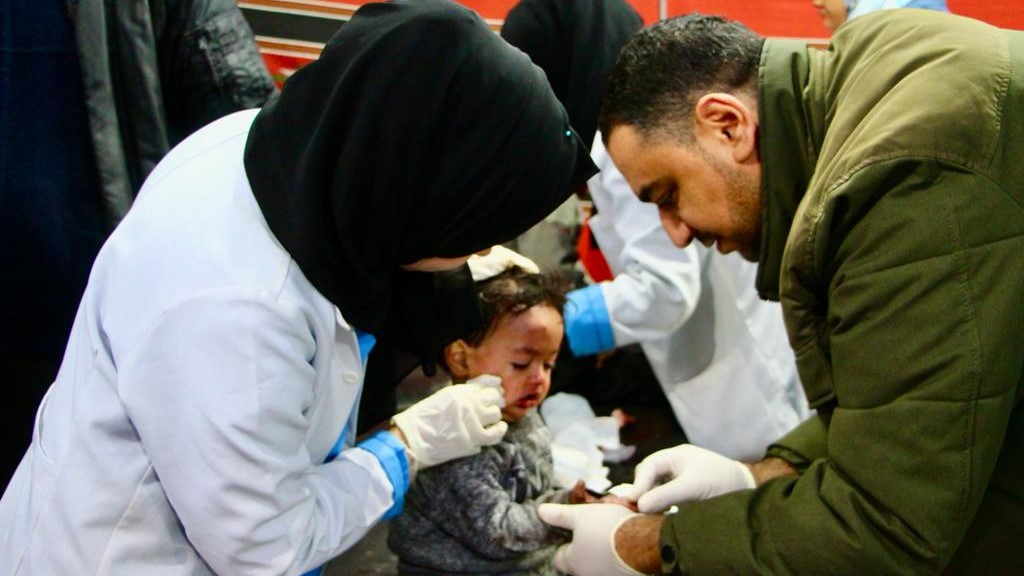The United Nations recently announced global progress in child mortality rates. However, the deaths of thousands of children in the Gaza Strip cast a serious shadow over this report. Since October 7, 2023, at least 12,300 children have been killed in Israeli attacks on Gaza, leaving thousands more vulnerable to bombardment, hunger, infectious diseases, and psychological trauma.
The ongoing food crisis, exacerbated by Israeli authorities’ blockade of aid convoys, is certain to cause a surge in deaths from malnutrition and starvation. Children of all ages face the danger of an imminent famine, including infants whose families lack access to baby formula or cannot initiate and maintain breastfeeding.
Read more | Starvation is a war crime: Note from the Israeli genocide against the Palestinians
Hunger not only poses a danger in itself but also acts as a catalyst for communicable diseases. Since October 2023, there has been a notable increase in infections among children under 5 years of age. Data collected by Juzoor indicates that there have been at least 179,000 new cases of acute respiratory infections, 136,400 new cases of diarrhea, and thousands of cases of scabies, lice, and jaundice in this age group. The actual number is likely much higher, but the decimated public health capacities in Gaza lack the material means to track and confirm them.
The spread of infections will cause more harm than usual because vaccination campaigns have been severely impacted. By now, more than 17,000 children have missed their vaccinations, making them vulnerable to diseases like measles, which would otherwise be considered under control. The harm is not only immediate but extends into the medium to long term: children left unvaccinated today will face the dangers of infectious diseases for years to come.
Even if enough vaccine doses were delivered to Gaza tomorrow, it would be impossible to catch up with the missed public health campaigns. There is no cold chain for storing vaccines, and most children are impossible to locate after several waves of forced displacement and life in overcrowded camps.
Children are also more vulnerable to physical injuries. Save the Children reported that between October 2023 and January 2024, more than 10 children per day lost one or both legs amid an ongoing shortage of anesthetics. Children were also among those shot in the kneecap by Israeli soldiers, a practice known as “kneecapping” that aims to cause the highest level of disability, as reported by Health Workers for Palestine.
An injury to the kneecap in childhood results in “a lifelong disability, disabling a generation of young children,” pediatrician Omar Abdel-Mannan told Health Workers for Palestine. Such actions aim not only to harm the child but to debilitate an entire generation and put additional stress on the health system.
Read more | Women in Gaza remain among the most impacted by war
One of the worst aspects of this practice is that children are already more vulnerable to major injuries than others. Jason Lee, Save the Children country director for the occupied Palestinian territories, explained earlier this year that it takes less force for children to sustain serious bodily harm due to their weaker necks and torsos. “Their skulls are not fully formed, and their undeveloped muscles offer less protection, so a blast is more likely to cause severe internal damage, even when there is no visible injury,” Lee said.
Invisible, psychological trauma is shaping children’s lives as much as physical violence. Already in 2022, reports warned of mental health consequences for children in the Gaza Strip related to the ongoing blockade, with bedwetting rates increasing by 26% between 2018 and 2022, and reactive mutism growing from 42% to 59% in the same period.
Gaza’s mental health services were already not strong enough to support all the children in need, but the decimation of health infrastructure—with both community and inpatient services shutting down—has only made things worse. Recent reports tell of children whose play patterns have changed to reflect themes of war and conflict, and whose resilience and coping mechanisms have been shattered. Among other issues, parents have reported increased levels of fear and anxiety among their children, sleep problems, and growing introversion.
“I wouldn’t even say their mental health has deteriorated – it’s been obliterated. Complete psychological destruction,” one of the parents described the situation.
People’s Health Dispatch is a fortnightly bulletin published by the People’s Health Movement and Peoples Dispatch. For more articles and to subscribe to People’s Health Dispatch, click here.





